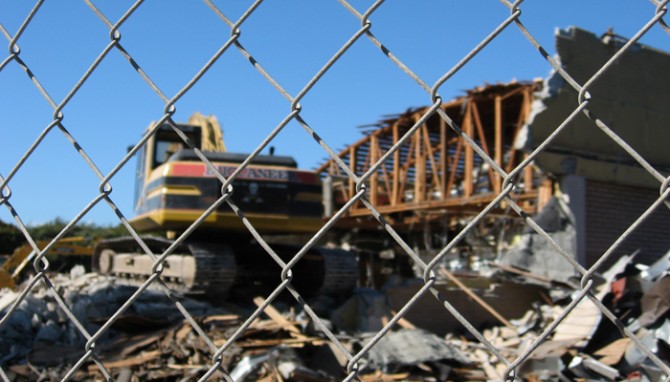
I live in downtown San Leandro, California, a city east of San Francisco that is more like a small town than a suburb. It’s one of the most walkable areas I’ve ever lived — better than my neighborhoods in SF and Chicago, even — and the city is working hard to develop the downtown core as a transit village.
The newest target of redevelopment is former Albertson’s grocery store, Lucky before that, which sat empty for years after more than 55 years in operation. After Albertson’s pulled out, the city failed to lure a Trader Joe’s and then the neighborhood blocked two discount chains who wanted the space. The fight between those who want to gentrify downtown and those who want to bring in retailers that would serve the working-class locals is a familiar tug of war.
Fenced off and neglected, the abandoned store has long been an eyesore, a constant reminder of a struggling city in a tough economy. As I learned when researching a food project, empty grocery stores are a particular challenge to re-let — they have an architecture and square footage that is unique to grocery stores, yet other grocers are wary of taking on a failed space. After many tanked plans and heated discussions, the city has purchased it to use as a temporary parking lot while they rebuild a downtown garage. After that, they will attempt to find retailers to anchor a mixed-use space. I can only hope by then the economy will have strengthened and other city development plans will have taken strong enough root to support it.
The company in charge of the demolition claims to be “environmentally conscious”, recycling 75% of materials generated and properly handling toxins. It’s such a specific claim it makes me wonder if this is unusual, or if most firms do it but don’t talk about it. After all, they are paid for scrap and charged for landfill runs so it would be logical for most demolition companies to encourage recycling at a minimum. On the other hand, I have watched firsthand as a construction crew junked leftover, whole pieces of expensive material. Even if the owners and contractors don’t support waste, this ethic may not trickle down the the workers who simply want to get the site cleared as fast as possible.
